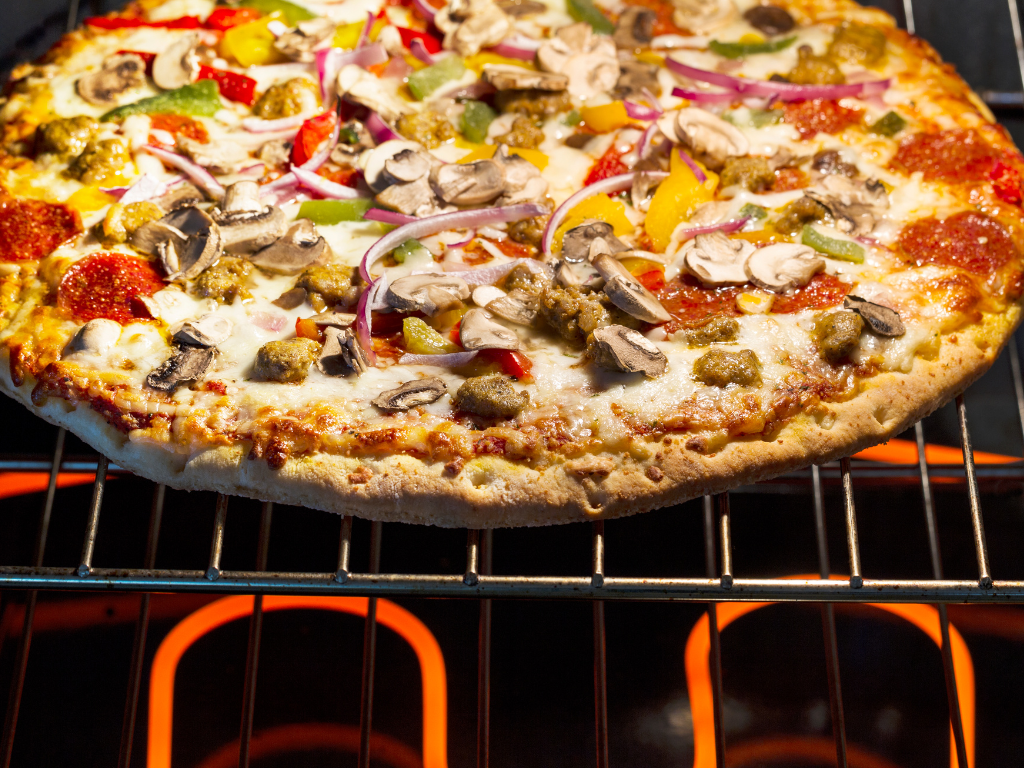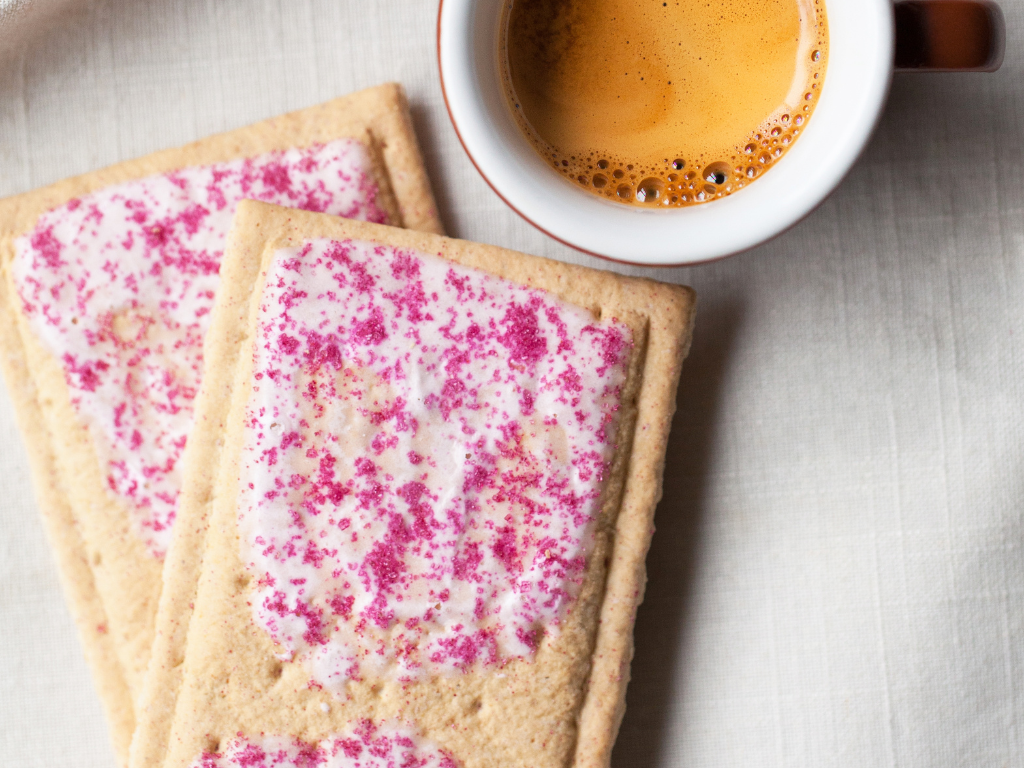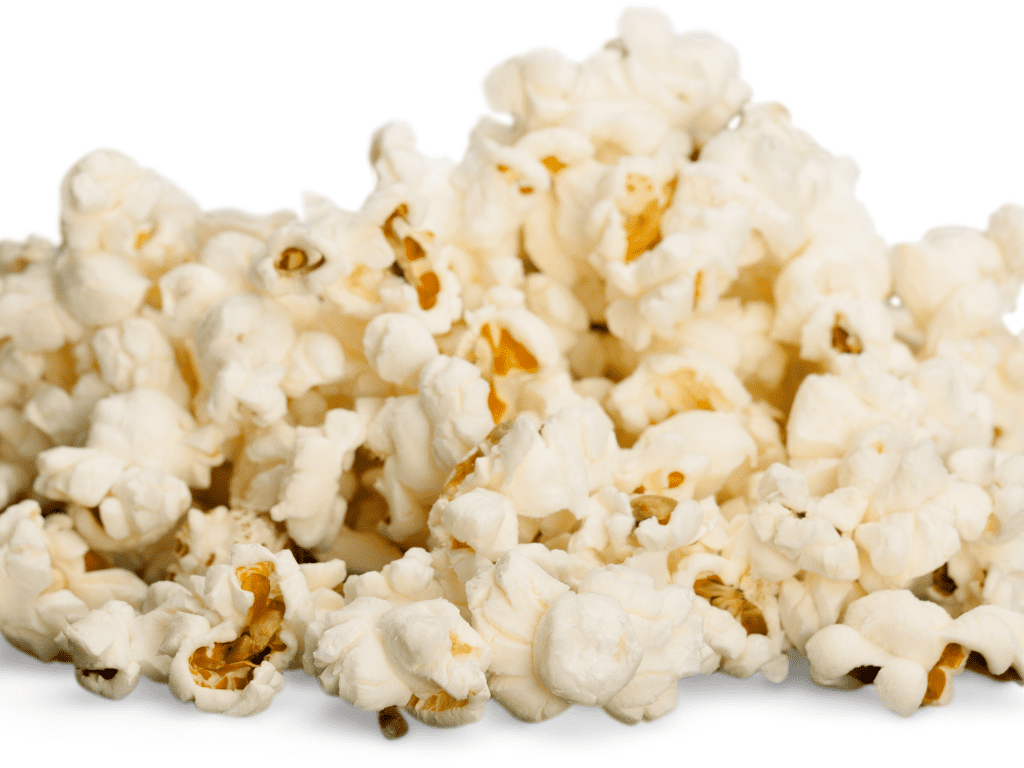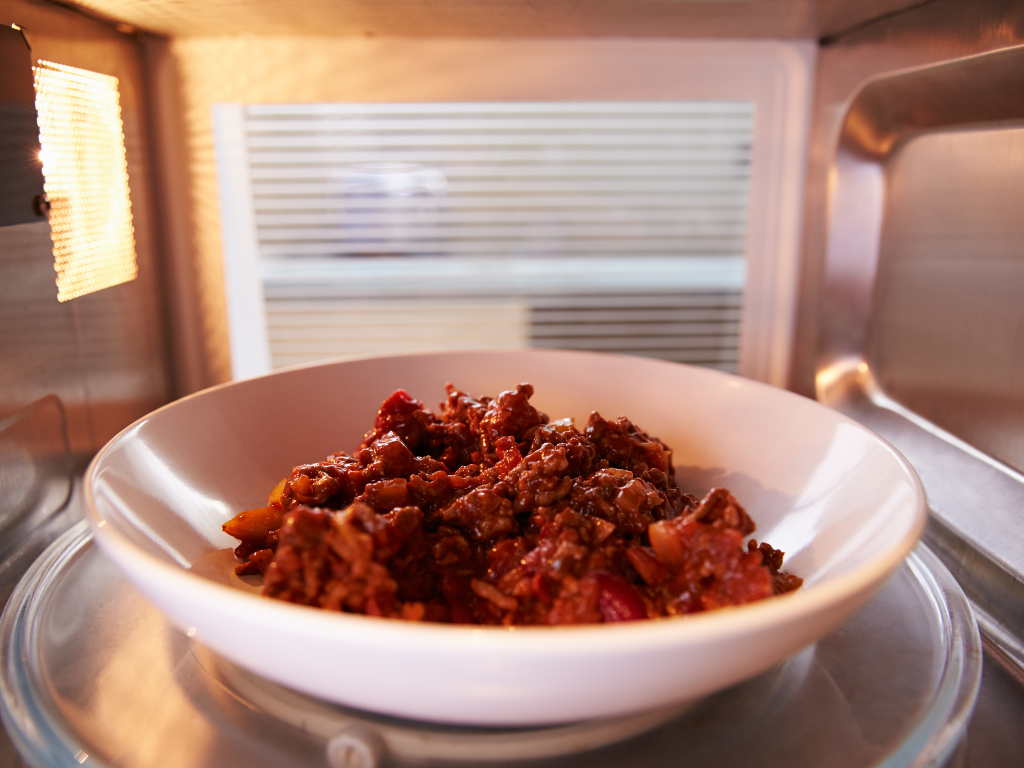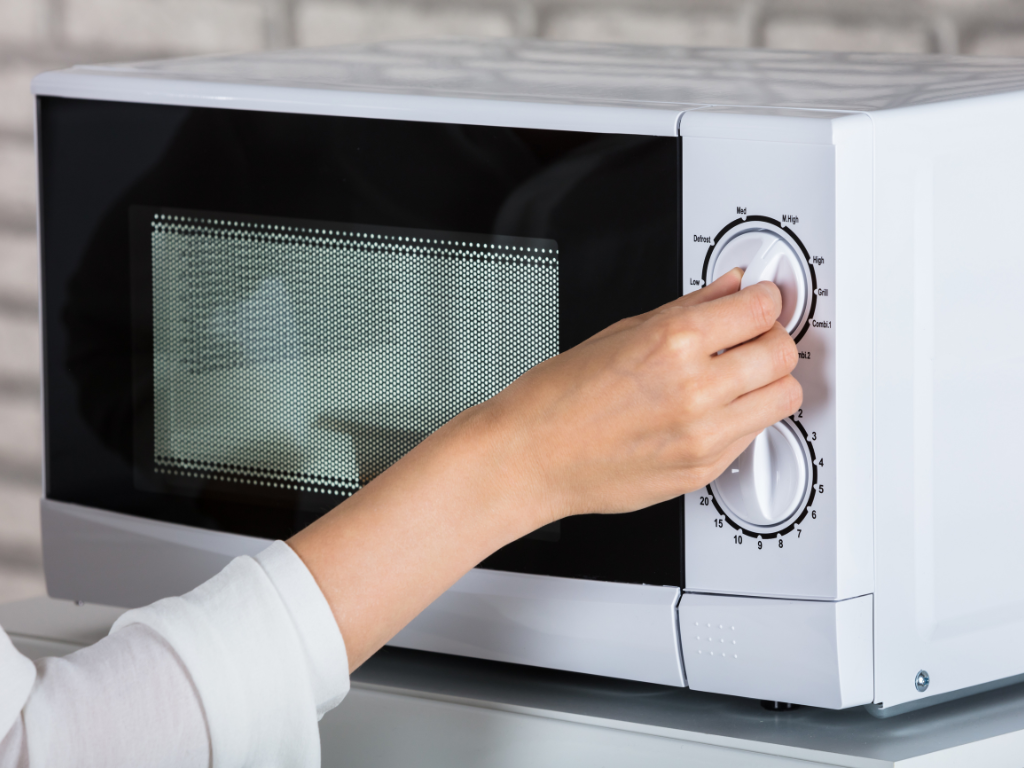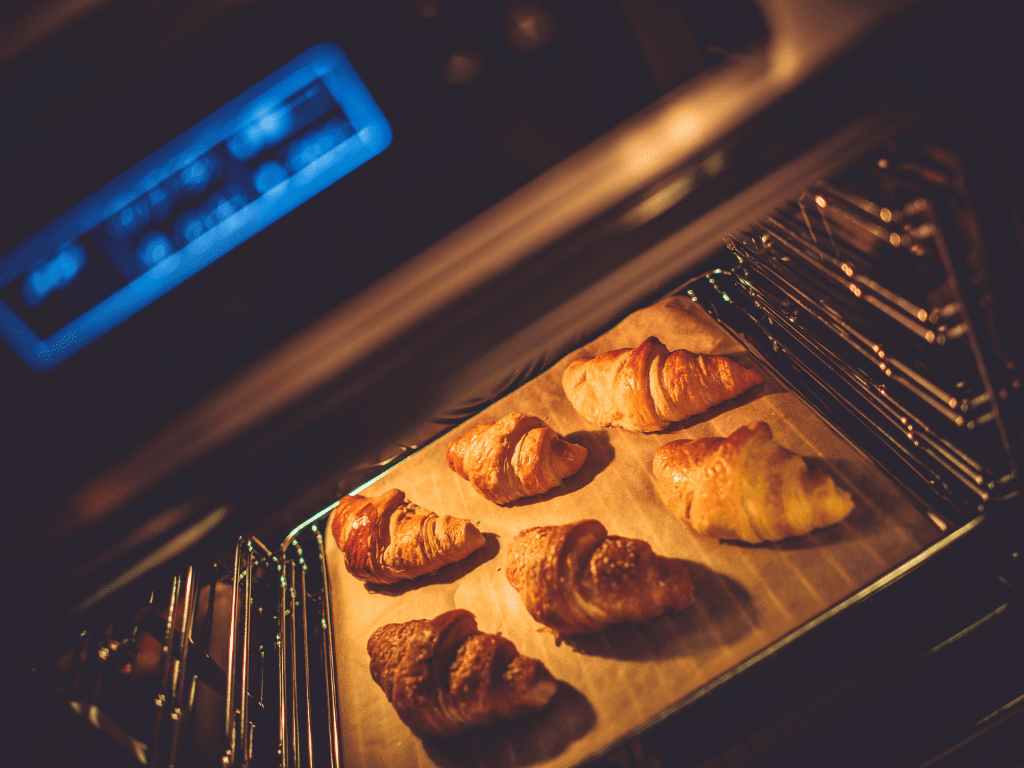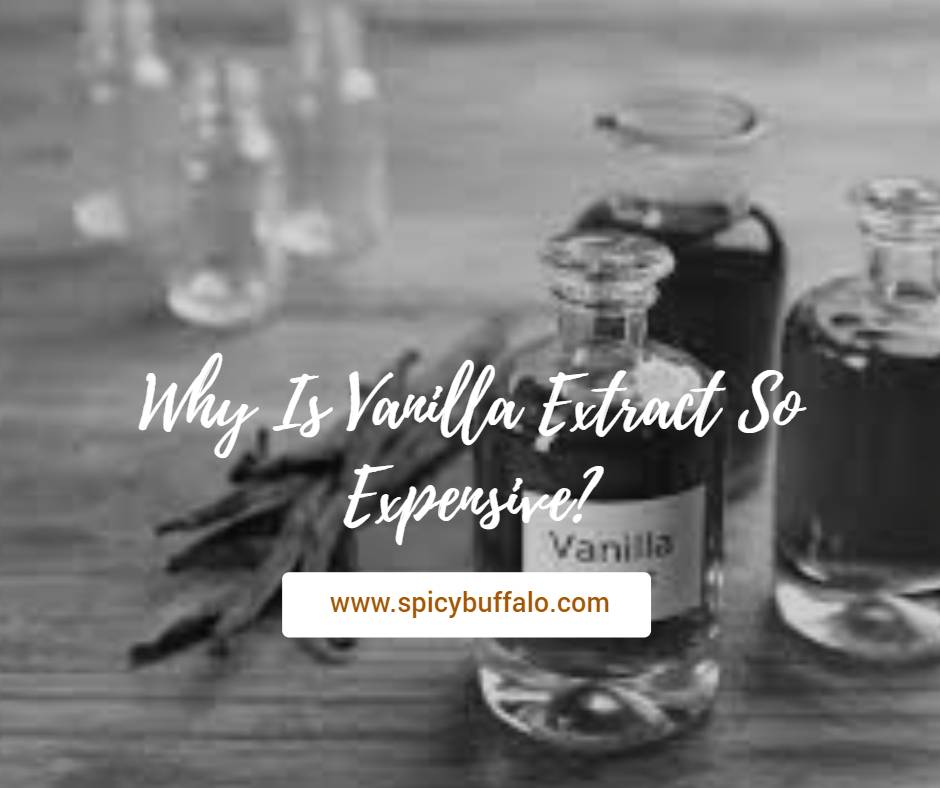
There are two different types of vanilla that you can purchase from the store.
Imitation vanilla shares the same vanilla flavor and texture as real vanilla, but since it’s artificially made, it’s cheaper.Vanilla extract which comes from the real vanilla plant is far more expensive.
The average price for vanilla extract is $20 for four ounces.
That price has increased over the years, however.
You can now expect to pay $300 per pound of extract.
You may wonder what makes vanilla extract so expensive.
1. Harvested In One Country
While several countries grow the vanilla plant, 80% of the world’s vanilla comes from Madagascar.
The country has the right climate, technology, and investments in vanilla to make this product its primary export. That also makes it expensive, however. The United States is a long distance from Madagascar.
That means shipping for vanilla extract is extremely expensive. It needs to ship a certain way to keep it safe and sanitary. Otherwise, it won’t pass FDA regulations, and it will be unusable. The cost to keep vanilla sanitary is high.
Since it requires more effort and more manpower, the costs associated with it drive up the price of vanilla. Buying from a country that is closer to the United States or from a farmer within the country will drive down the price a little.
Since Madagascar supplies most of the world’s vanilla, however, it can be difficult to find alternatives, especially if you’re looking for a cheaper price.
2. The Market Value
Since Madagascar supplies 80% of the vanilla in the world, it also can set the market value of vanilla. The country essentially has a monopoly on vanilla. Competitors can try and undervalue vanilla, but they do so at a loss.
That’s because they can’t produce enough vanilla to make it worth selling it at a lower price.
Customers will always buy products that they can rely on. Since Madagascar usually has vanilla in stock, they know that it’s always there for them to purchase. That may not be the case for a company that only produces a small amount of vanilla every year.
This is especially true when a company offers its vanilla at a cheaper price. Due to Madagascar’s monopoly on vanilla, they can determine what the market value for vanilla is. Competitors have no choice but to follow the market if they wish to keep their business alive.Vanilla is expensive because Madagascar decides it’s going to be.
3. Storms
The problem with most of the world’s vanilla coming from a single country is that if anything happens to that country, it can affect the global supply.
In Madagascar’s case, they’re subject to violent storms. In the past few years, the country has seen several storms that have destroyed its crops and buildings. That decreases the supply of vanilla to the world by the ton.
Since there’s less vanilla exported, there’s also less in the world. Shortages drive up the price of vanilla. There’s always a lot of demand for vanilla extract. With the supply dwindling thanks to storms, the price skyrockets. Storms are destructive because they destroy the crops themselves.
High winds and heavy rains can either tear up the plants by their roots or drown them. Flooding can cause mudslides which can also destroy the crops. If the buildings face damage, then that slows down the process, too. The plants that survive then have no place to go for harvesting and processing.
The vanilla companies have to spend money to fix the buildings to be able to continue processing their plants. Then they need to buy new vanilla seeds, fix the fields, then plant.
Since it takes time for plants to grow until they’re harvestable, that only adds to the wait time and makes the supply dwindle even further. All these factors also cost money. To make up for their loss in profits and to fund repairs, the price for vanilla extract increases.
4. Difficult Growth
A major factor that influences the price of vanilla extract is the fact that the plant has a difficult growth period. Vanilla is one of the many varieties of the orchid plant. However, only a single species of the orchid sprouts vanilla beans.
It’s those beans that make up vanilla extract. Vanilla is one of the most labor-intensive plants in the world. It requires hand-pollination to grow and sprout beans. That means that a farmer has to actually go out into the fields and pollinate the orchids personally.
If the farm has several thousand orchids, then it can take a long time to pollinate all of them. The orchid plant is also delicate. It dies easily. Farmers must take exceptional precautions to ensure their survival. The plants need the right climate, the right soil, the right minerals and nutrients, and the correct amount of watering and sunlight.
If any of these factors are off, then the orchid dies. That’s a waste of resources that the company then needs to make up for. Once the crop flowers, however, the laborious process isn’t over. Farmers must then take the crop and cure them.
Then they’re dried. The entire process takes a year for a single crop of orchids. Since orchids only flower once a year, the farmer has to pollinate them that very day.Otherwise, they won’t get any beans out of the plant. Since the plant is so difficult to grow, keep alive, and harvest, it’s very costly. That reflects in the price of vanilla extract.
5. A Single Species Of Plant
As mentioned before, vanilla comes from only a single species of the orchid plant. That drives up the price of vanilla extract for many reasons. One of the reasons is that, since it only comes from a single plant, farmers are stuck with it.
With several pieces of plants, farmers can plant various versions of them to harvest throughout the year. Each species tends to have its differences which is what makes it a different species to begin with. Those differences allow farmers to use a variety of processes and methods to increase their yield.
That isn’t the case with vanilla. Since they only have one plant to work with, all their hopes rest on that single species of plant. That also means there’s less of a chance to grow the plant in other parts of the world. Other species may have different conditions for growth.
They may find different climates acceptable or have different sunlight requirements.That allows them to grow in other areas besides Madagascar. That isn’t the case, however. The single species of vanilla grows best in the conditions that Madagascar provides. Finally, different species sometimes come with different flowering seasons.
That allows farmers to continue to harvest them throughout the year. That isn’t the case with vanilla. Since there is only one species, it only flowers once a year. Farmers have only a single chance to harvest the flower and obtain vanilla beans. The fact that vanilla only comes from a single plant makes it more expensive.
6. Labor Costs
Because vanilla plants are so difficult to work with, you can expect the labor costs to be high. Many farmers are generational farmers. They come from families who have a history of farming vanilla plants. Because they bring generational knowledge with them, they’re not the cheapest group of laborers. That’s also because the success of the harvest depends on the skill of the farmer.
They need to know how to hand-pollinate orchids correctly to get them to flower. Then they need to know how to properly process the plant when it comes time to harvest the orchids. A farmer without this knowledge can either cause the flower not to give its beans or fail to process the beans. The result is an entire waste of a crop. That’s an expensive loss. Since labor needs to be from an experienced farmer, that comes with an added cost.
These farmers know that the companies can’t produce vanilla without their knowledge.
At the very least, they won’t be as successful or have as high of a yield without them. Their hard work is also worth paying for. Since they toil endlessly to ensure the plants have the best conditions in which to grow, they deserve a decent amount of pay for their labor. That means that the price of vanilla also increases. The companies need to be able to pay their farmers a good wage to keep them in their employ.
7. Labor Shortages
At one point in time, vanilla extract was actually very cheap. It was so cheap that the farmers weren’t getting paid well enough. They ended up quitting, It wasn’t worth the hard work they put into the farms. This created a labor shortage. With fewer orchids farmed and processed as a result, there was less vanilla extract shipping out.
That occurred right around the time when the popularity of real vanilla started to grow. There was a growing demand for it but not enough supply to meet the demand. That pushed the price for vanilla extract to an expensive range. Some of the farmers returned since they were receiving a higher wage as a result.
However, it goes to show that labor shortages have a direct influence on the price of vanilla. Companies still rely on human farmers over machines for their vanilla plants. Because of that, the farmers have a lot of power since they’re generational. It isn’t a process that can be easily learned by new farmers.
You have to grow up with it. If those farmers decide to quit, then it leaves the companies in a hole. It also puts supply at a standstill. Any time there’s a shortage, you can expect the price of vanilla to increase. The shortage may come from civil unrest, storms, illnesses, or even because of workers’ rights. This is true of all vanilla farmers and not only the ones in Madagascar. If there’s a labor shortage, then the supply decreases, and the price increases.
8. The Processing Of Vanilla Extract
Once the vanilla has gone through its own processing steps, vanilla extract requires its own processing. This adds even more time and cost to the product. To make vanilla extract, manufacturers have to soak the vanilla pods from the crop in a 35% or higher concentration of alcohol.
It takes at least six months for the pods to be properly saturated. The alcohol helps enhance its flavor. Soaking them even longer further enhances the flavor. Most manufacturers choose to only wait an additional six months, however, before pushing it onto the next developmental steps. Since it takes six months to make extract, this also adds to the cost of vanilla. The company isn’t making money during this period.
They’re only waiting for their product to finish. To cover that time in production, they have to set the vanilla extract at a certain price point. The price point covers the costs of processing and production. It also means that they need to buy the materials with which to process the vanilla. They need the right amount of alcohol, which also takes time to produce, and then the right storage container to soak the pods.
They also have to ensure that the pods live through the process. It’s a delicate procedure that is also labor-intensive. The process of making vanilla extract is costly in both time and money. That increases its price and makes it expensive.
9. Popularity
For a long time, everyone concerned themselves with using artificial vanilla over pure vanilla. That’s because it was cheaper, and the flavor was essentially the same. However, as chefs and candy makers started to use real vanilla in their products and recipes instead, the world took notice. Real vanilla has a unique property to it.
Not only does it enhance the baked good or candy, but it also enhances all the ingredients within it. This gives the baked good or candy a certain flavor that cannot be duplicated by anything else. It’s also seen as healthier than artificial vanilla since it comes from a plant. Artificial vanilla, on the other hand, can come anywhere from coal tar to petrochemicals.
No one likes the idea of putting those things in their body. With a desire to eat more cleanly, more and more people are buying pure vanilla instead of artificial vanilla. The problem is that this increases the demand for a product that already has a small supply. Everyone from chefs to candy makers to even at-home bakers want pure vanilla to use in their recipes. With little to go around, it drives up the price of vanilla extract.
10. Theft
Because vanilla pods are so valuable, many of them are a target of thieves. Farmers who spent a lot of time planting, growing, and pollinating their flowers find that thieves have stolen the beans before they could harvest them. Since beans are almost impossible to mark, it’s difficult to know which beans are being sold legally and which ones are illegally sold.
This is added to the cost of vanilla because farmers have to implement certain safety measures to keep their crops safe. For some farmers, this means branding their crops. For others, it means hiring security to patrol their fields and processing houses. Thieving doesn’t help the supply lines since it still comes from the same source.
Instead, it makes the price fluctuate even more because farmers are operating at a loss. They have to increase the price of the vanilla that they were able to produce to cover the cost of the theft. Due to thievery, the price of vanilla is expensive.
Vanilla is an extremely difficult plant to grow and harvest. It requires hand-pollination which is a lengthy and laborious process. However, it is possible to save money on vanilla by following the tips above.
Is it worth it to buy real vanilla extract?
Most people think that pure vanilla extract is always better than artificial vanilla.
However, it’s not always true. Artificial vanilla can be just as good as pure vanilla if you know what to look for. When you choose synthetic over natural ingredients, it’s easy to find out the differences. Even though the taste is similar, there are many more benefits to synthetic than there are for real vanilla extract.
1) Artificial Vanilla Has Fewer Calories Compared To Pure Vanilla Extract
When you compare artificial and pure vanilla extract, you will see that pure vanilla extract has fewer calories per serving than its artificial counterpart. There are about 30 calories in a one-tablespoon serving of artificial vanilla, while the same amount of pure vanilla extract has 60. However, those extra calories aren’t coming from sugar. Instead, they come from the alcohol used to make real vanilla extract.
2) Artificial Vanilla Has Less Fat
Again, when you compare real and artificial vanilla extract, you will see that artificial vanilla has much less fat than its natural counterpart. A tablespoon serving of pure vanilla extract contains four grams of fat. Four grams is just under 8% of your daily allowance for saturated fats. The same amount of artificial vanilla has 0 grams of fat or saturated fats. This goes to show how much artificial vanilla is healthy compared to pure vanilla.
3) It Contains More Calories Than Pure Vanilla Extract
You can use vegan and low-calorie sweeteners instead of sugar or brown rice syrup. While most people choose synthetic vanilla extracts over real because they know there is only one ingredient, artificial vanilla extract contains more calories than pure vanilla extract. If you are trying to lose weight, this isn’t a good thing. If you’re watching your waistline, it’s also not a good idea. You have to think about what you should be doing with the extra calories that are in artificial vanilla extract.
4) It Can Be Made From All-Natural Ingredients
Many companies today are able to produce artificial vanilla extract from all-natural ingredients. Instead of using chemicals or artificial colors and flavors, many companies import the same beans like those used in producing pure vanilla extract. However, it’s only worth it because these products are often sold as imitation vanilla extracts. Therefore, you should check with the manufacturer to see if it’s truly made from all-natural ingredients or not. Doing that will help you save money without sacrificing flavor and nutritional value.
What is the difference between pure vanilla and vanilla extract?
Manufacturers may be able to produce artificial vanilla extract with all-natural ingredients, but it’s still not worth it. Pure vanilla extract is made from those same beans used in producing natural vanilla extract. There’s no difference between the two; they are simply different ways to make a product out of them.
Pure vanilla extract uses real ingredients like vanillin and citric acid. It is made from sugar, alcohol, and water which makes it a little thicker than artificial vanilla extract but also sweeter than natural extracts. Artificial flavoring is created by mixing chemicals such as vanillin with other chemicals or enzymes.
Is McCormick vanilla extract real?
Vanilla extract is one of the most popular items that you can use to make your food taste better. If you look around, you will see a variety of companies making different types of vanilla extract. There are also times when you will be given the choice to buy vanilla extract that is made by another company instead of McCormick.
When there is a difference in quality, usually it’s because one is made as an imitation and the other is made with real ingredients. Real vanilla extract contains many health benefits, while imitation extracts usually do not contain these qualities.
It’s possible to tell if an item is real or not by looking at its ingredients. You should find out if there are any chemicals or artificial flavoring used in the vanilla extract. Also, you should check to see what the company has claimed about their product.
If a company tells you that their vanilla extract is all natural, that’s a good sign that it’s real. If they don’t tell you anything about the ingredients, it probably isn’t real.
Is McCormick kosher?
You may have noticed that some of the items that you buy aren’t always kosher for Passover or other Jewish holidays. While it’s easy to spot a product that is kosher for Passover, you may also have trouble spotting vanilla extract that is kosher for Passover. This can make it hard to follow the dietary laws as they should be followed.
When you are looking for kosher vanilla extract, you need to make sure that it’s certified as kosher for Passover. McCormick doesn’t have any products that are certified this way, so you need to find other companies that can cater to your needs. As long as the vanilla extract is non-alcoholic and kosher for Passover, it should be fine. Just remember that some companies may still use artificial flavoring or additional ingredients which will not adhere with your diet.
Why is vanilla so expensive at Costco?
It’s easy to see how vanilla extract can be expensive when you compare it to other similar products. Other items can contain artificial flavorings while vanilla doesn’t. Also, companies don’t make a lot of money from vanilla extract; the ingredients are expensive, and it only contains one part of a plant.
If you are looking for an inexpensive way to use vanilla, then consider buying pure vanilla bean pods. These can be pricey at some stores, but if you look online, you may find them for a much better price. You also have to consider how many times you will have to use them before they start losing flavor too.
There are many different types of artificial vanilla extract. Some of the better products can be very expensive, but you should ensure that they are in fact real before you purchase them. Learn more about the ingredients that they contain and if they are certified to be kosher for Passover. It’s also important to make sure that a company is reputable or licensed. If it’s not, it’s better to avoid using their products. You don’t want to risk purchasing a fake product which will end up costing you more in the long run. This should help you decide which artificial vanilla extract brands you should purchase over any others available on the market.

